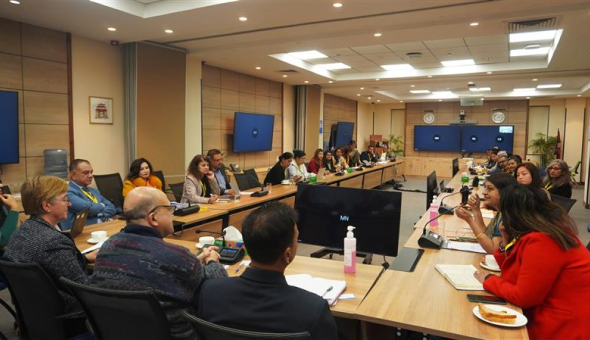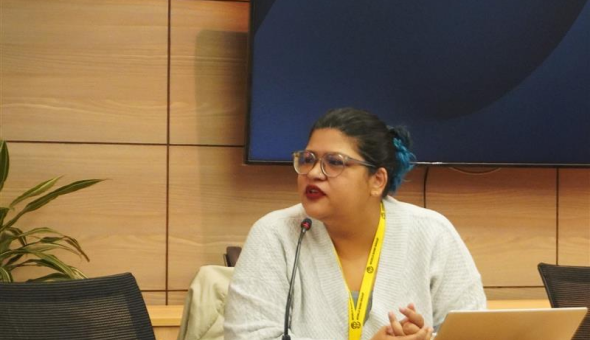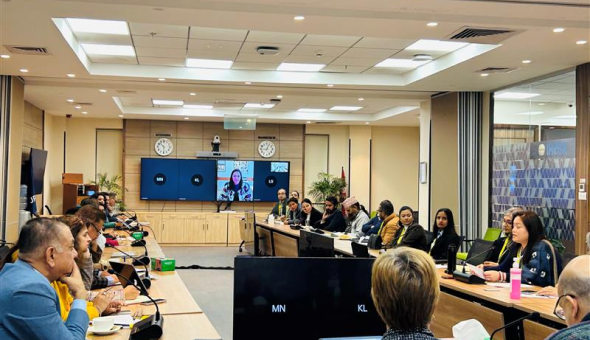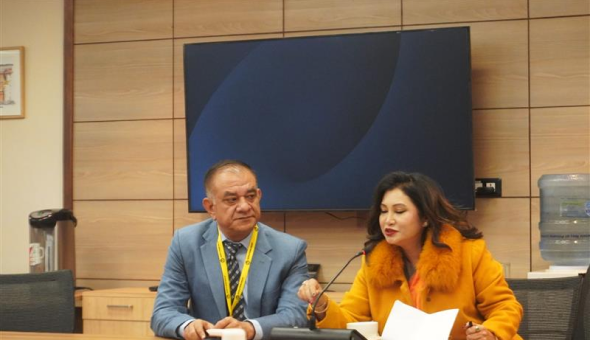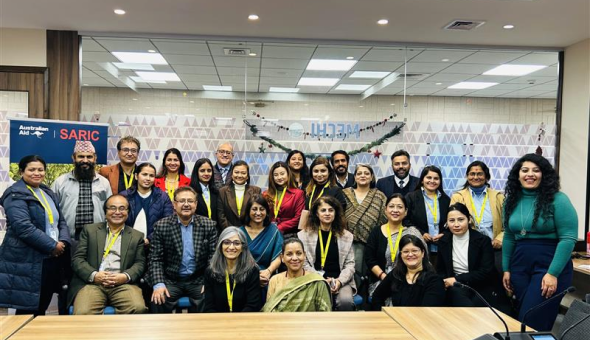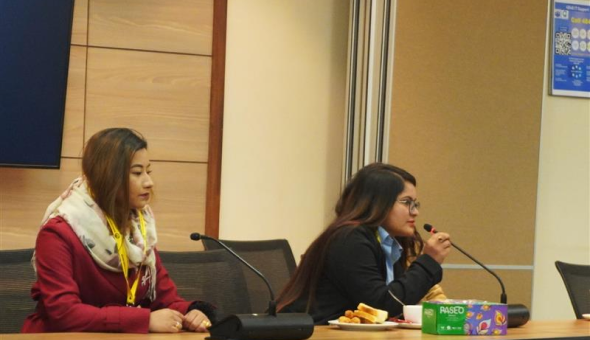In her opening remarks at the workshop, Ms. Sunita Gurung from the Australian Embassy in Kathmandu, highlighted that India’s trade within the BBIN increased by about 7.4% over the past five years. However, she stressed the lack of inclusivity in this growth, particularly in the limited participation of South Asian women in trade-related activities, leading to missed economic opportunities. The challenges faced by women entrepreneurs in the BBIN region extend beyond the well-known barriers in international trade. In addition to issues like inadequate access to information and complex trade procedures, women face obstacles related to poor transport and digital connectivity, as well as a lack of gender-responsive infrastructure at border posts.
SARIC organized a workshop in collaboration with the Indian Council for Research on International Economic Relations (ICRIER) and The World Bank in Kathmandu centred around the theme of ‘Gender Mainstreaming in Land Ports’ with a specific focus on the BBIN (Bangladesh, Bhutan, India, Nepal) countries.
The primary objective of the knowledge workshop was to reflect on key impediments faced by women at land ports, share the gender lens framework which has been developed for the land ports in India, highlight best practices, reflect on the ongoing research and action plans developed by WB and ICRIER for LPAI, and stimulate discussions on the importance of applying a gender lens to infrastructure development. The aim was to sensitize stakeholders about the need for gender mainstreaming and explore opportunities for regional cooperation among the BBIN countries which in turn contributes to economic prosperity in the region. The workshop brought together key stakeholders and experts from Nepal and India, facilitating discussions on the subject, and sharing studies, best practices, and frameworks.
Land ports play a crucial role in facilitating trade among the BBIN countries, with India being a key player in this network. The workshop highlighted that all of India’s trade with Nepal and Bhutan occurs through land ports, while 40% of bilateral trade with Bangladesh takes place through these ports. For landlocked Bhutan and Nepal, land ports serve as the gateway to seaports, emphasizing their strategic importance.
The workshop drew on ICRIER’s recent study on Gender Mainstreaming at India’s Land Ports, offering insights into a comprehensive template for assessing gender-related aspects of both hard and soft infrastructure at land ports. The study is a pioneering effort to incorporate a gender mainstreaming strategy into trade facilitation measures at these ports.
Key takeaways from the workshop include the need for gender-responsive infrastructure and operations at land ports to enhance women’s participation in cross-border trade. Mechanization and digitization at land ports were identified as crucial steps to attract more women to the trade sector and improve employment opportunities. The workshop also emphasized the importance of mainstreaming gender in cross-border infrastructure initiatives for a coordinated regional approach.
To move forward, it was suggested that international development agencies should support knowledge products and learning opportunities to gain government buy-in. This includes highlighting the benefits of targeted trade facilitation for women, producing gender-based knowledge products, and organizing learning tours for government officials. The workshop recommended the replication of similar initiatives in Bhutan and Bangladesh to foster a holistic approach to regional transport and logistics infrastructure.
Further, the workshop highlighted the importance of promoting women to higher decision-making roles, not just in administrative and traditional positions, to ensure a more inclusive and progressive approach to gender mainstreaming in the BBIN region. It was attended by 37 attendees from Land Ports Authority of India (LPAI), IFC, Federation of Woman Entrepreneurs Associations of Nepal (FWEAN), Federation of Nepalese Chambers of Commerce and Industry (FNCCI), Nepal Intermodal Transport Development Board (NITDB), Department of Customs and Nepal Freight Forwarders Association (NEFFA), amongst others.
